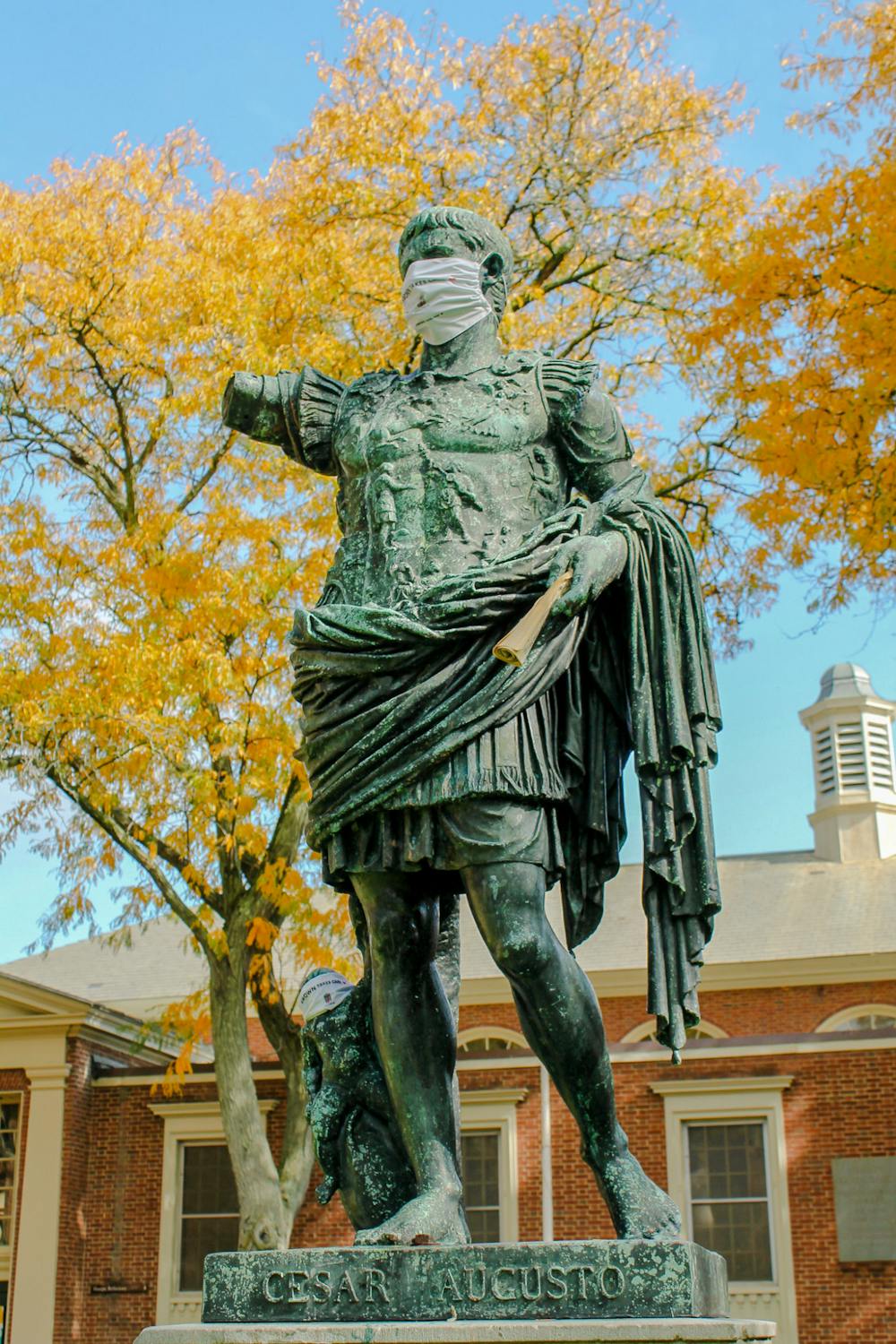The University will continue to offer bivalent booster clinics and provide free masks and tests to undergraduate, graduate and medical students as Brown enters its seventh full semester responding to the COVID-19 pandemic, according to Vanessa Britto MSc’96, associate vice president for campus life and executive director for health and wellness.
There are no significant changes to Brown’s public health approach to COVID-19, according to a Jan. 20 email sent to students regarding the community’s return to campus. The email, written by Britto and Koren Bakkegard, associate vice president for campus life and dean of students, encouraged students to test when symptomatic and required that students report positive COVID-19 test results to Health Services after arriving on campus.
“We’re not doing anything differently,” Britto told The Herald, referring to continued University policies around testing, masking and isolation practices, although Brown is “strongly recommending” people wear masks indoors and in large groups.
“It’s sort of natural that when people come together and haven’t seen each other, especially when we’re indoors and are unmasked, … we tend to see an uptick” in COVID cases, Britto said. “It’s something that we have come to expect. But the idea is to blunt that curve and try to limit the number of” cases. Britto emphasized a continued lack of hospitalization and cases of serious illness in the University community due to COVID-19.
According to Suzanne Bornschein, medical director at the Center for COVID-19 Epidemiology at the Rhode Island Department of Health, the state is likely in a “downslope” after three counties in Rhode Island hit high community levels of COVID-19 in early January. After the reported 214.18 new cases per 100,000 Rhode Island residents the week of Jan. 7, rates in the Ocean State dropped to 139.2 per 100,000 last week.
“It looks like, at least for the next couple of weeks, (COVID-19 rates within the community) will continue to decrease,” Bornschein said.
The University hosted a booster clinic for students on Jan. 25 and will hold another on Feb. 2, with plans to continue providing clinics until demand diminishes. According to Britto, the booster clinics have “all been full,” with 1,700 COVID-19 bivalent boosters and 4,150 flu vaccines distributed so far this academic year.
“I'm so happy to see that people are vaccinating at a relatively high rate,” Britto said.
According to Bornschein, 87% of Rhode Islanders have completed their primary vaccine series, an “astronomically high number.”
“Everyone should get a booster dose,” Bornschein said. “Staying up to date with the COVID-19 vaccines is really the best protection against the virus.” She added that the bivalent COVID-19 booster, which targets the ancestral strain of COVID-19 as well as the Omicron strain, continues to be effective against the XBB.1.5 strain, a highly transmissible variant of Omicron and the current dominant strain in New England.
Any respiratory illness, whether it is COVID-19, the flu, RSV or the common cold, can disrupt schedules and sideline individuals, Britto said. “Our goal is to try to help people stay as healthy as they can be and do (what) we can to support them.”
KN95 masks and COVID-19 test kits are available for pick-up 24/7 at the Key Office in Graduate Center E for all students. The Feb. 2 booster clinic will be held from 10 a.m. until 1 p.m. in the Multipurpose Room of the Health & Wellness Center.
Haley Sandlow is a contributing editor covering science and research. She is a junior from Chicago, Illinois studying English and French.





